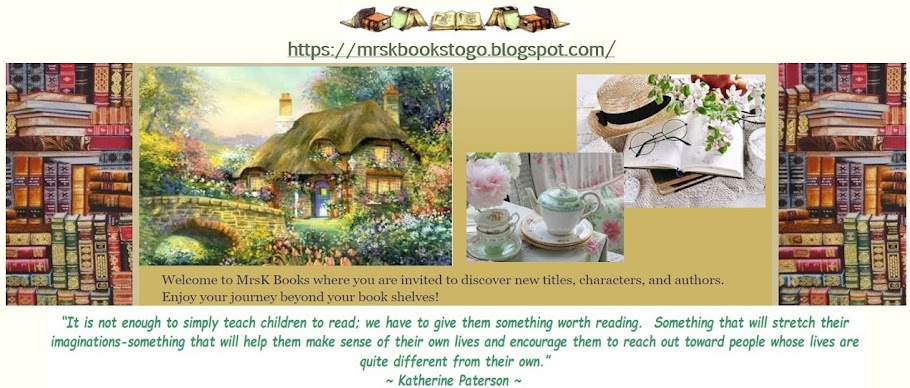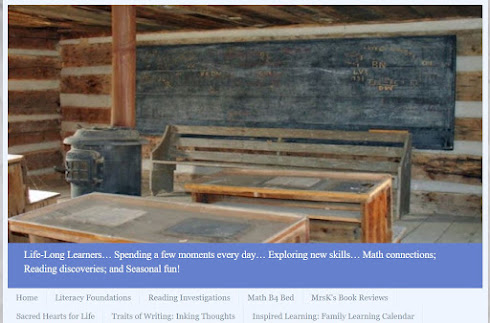ISBN: 9781451681758
Publisher's Synopsis:
After four harrowing years on the
Western Front, Tom Sherbourne returns to Australia and takes a job as
the lighthouse keeper on Janus Rock, nearly half a day’s journey from
the coast. To this isolated island, where the supply boat comes once a
season, Tom brings a young, bold, and loving wife, Isabel. Years later,
after two miscarriages and one stillbirth, the grieving Isabel hears a
baby’s cries on the wind. A boat has washed up onshore carrying a dead
man and a living baby.
Tom, who keeps meticulous records and whose moral principles have withstood a horrific war, wants to report the man and infant immediately. But Isabel insists the baby is a “gift from God,” and against Tom’s judgment, they claim her as their own and name her Lucy. When she is two, Tom and Isabel return to the mainland and are reminded that there are other people in the world. Their choice has devastated one of them.
MrsK's Review:
What can be more comforting than a glimpse of a light house. Every lighthouse has an elegant beauty, a majestic beauty that beckons all to stop, look, and ponder its stature and strength. Its beacon of light guiding, searching, and guaranteeing that there is hope?
It is April 1926 and Isabel is at the cliff's edge tending the small cross and the newly planted rosemary bush. For just a brief moment she thinks she hears her child's cry.
It is April 1926 and Isabel is at the cliff's edge tending the small cross and the newly planted rosemary bush. For just a brief moment she thinks she hears her child's cry.
"Things turned up in their own time, in their own way.
The light station sat solidly in the middle of the island,
the keeper's cottage and outbuildings hunkered down beside the lighthouse,
cowed from decades of lashing winds."
Janus Rock the home of the light station built in 1889. It becomes the home for Tom an honored veteran from the Western Front. A man of honor, a keeper of the light and lives of those he loves. A man indebted to the voices and memories of the men who did not return from the front. A quiet and gentle man who is destined to keep the light for any and all who are traveling pass West Australia.
"Gradually, lives wove together once again into a practical sort of fabric
in which every thread crossed and recrossed the others
through school and work and marriage,
embroidering connections invisible to those not from the town."
On a sunny winter's afternoon, Tom sat on a bench near the jetty at Point Partageuse. A young woman was feeding bread to seagulls, and for Tom her animated joy and laughter would be the unexpected "gift" that will nurture love, a sense of home, hope, and sorrow.
"She's still a beauty, still after all these years...
The white stone light tower rested against the slate sky like a stick of chalk.
It stood a hundred and thirty feet high,
near the cliff at the island's apex..."
Not only was that young woman a surprise when Tom had been at the jetty, she proves to be the "unexpected" letter that will warm is heart and the long winter season. As a light keeper, there isn't much to do other than maintaining the light. Many have been known to knit or carve scrimshaw... for Tom it will be the correspondence from Isabel that will fill his days with light. With a two week break from Janus, Tom and Isabel will spend endless days together discovering life. For Isabel, although younger than Tom, she will begin feeling the "urgency" call to not "put off" what matters.
"On the lights... you account for every single day.
You write up the log, you report what's happened,
you produce evidence that life goes on."
And yet, on April's day of the miracle, decisions will be made. A baby has drifted to the Janus shore. The little one's father is dead in the boat, a mother's shawl lies in the hull. A baby! Any parent will know the feelings of looking into the eyes of a little one. A few will know of the tears within your soul due to the sorrow of a hope that has died. For Isabel the death of her second infant was that type of a turning point. With a mother's broken heart, she held this baby and knew that God had given her a miracle. For Tom, he knew that her request would bring the most "unbearable" decision he would ever make.
For little Lucy's christening, they gathered at the church. While they waited in the shade, a fresh granite stone ushered in the reality of truth.
"In loving memory of Franz Johannes Roennfeldt,
dearly beloved husband of Hannah,
and of their precious daughter Grace Ellen.
Watched over by God."
Guilt and love can be a dangerously lonely season. How can you make something right if it will cause "unbearable" pain for someone else? With the passing of two years, Lucy turns four and her life is filled with the joys of being the only child on Janus. Childhood memories that are so sweet. Until the moment that the boat arrives and takes them from the Light:
"The island swims away from them, fading into an ever more miniature version of itself,
until it is just a flash of memory,
held differently, imperfectly by each passenger."
Without hope... all will need a "guiding" light...
So beautifully crafted, it is a journey of a life-time,
MrsK
Reading Group Guide for The Light Between Oceans
Meet the Author:
Interview by Tess Taylor
This novel is set against the
backdrop of the aftermath World War One, and understanding the losses
that everyone touched by that war has suffered—which is to say
everyone—is critical. The war touches each character differently, but
they each reflect facets of the greater loss. When did you know that
this story would be set at that time? Did the lighthouse and the war
emerge together in your mind? How did you find yourself imagining them?
When the lighthouse first turned up, I knew that I was seeing something a long time ago, but I didn't know exactly when. Once I saw Tom, the lightkeeper, I knew that he had opted for life 'on the Lights' to get away from trauma, and that that trauma was the Great War. I only found out later, speaking to an archivist in the Australian Archives, that this happened frequently: many returned soldiers sought the solitude that life as a lightkeeper offered: they no longer knew how to function in civilization. The more I read the stories of Australian WWI soldiers, the more I understood the sort of man who volunteered for war, and the impact it had on him.
When the lighthouse first turned up, I knew that I was seeing something a long time ago, but I didn't know exactly when. Once I saw Tom, the lightkeeper, I knew that he had opted for life 'on the Lights' to get away from trauma, and that that trauma was the Great War. I only found out later, speaking to an archivist in the Australian Archives, that this happened frequently: many returned soldiers sought the solitude that life as a lightkeeper offered: they no longer knew how to function in civilization. The more I read the stories of Australian WWI soldiers, the more I understood the sort of man who volunteered for war, and the impact it had on him.




No comments:
Post a Comment